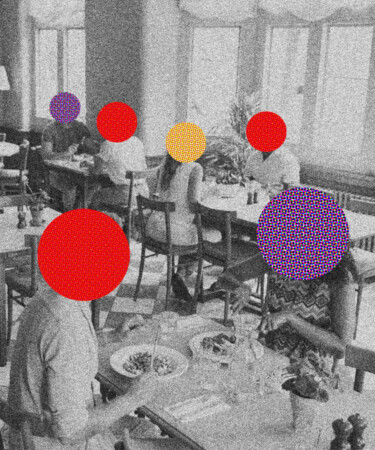A friend messaged me recently and asked why restaurants make you wait for your complete group to arrive before seating you. He was at a business lunch and his dining companion was five minutes late, but the host wouldn’t seat him and instead he had to wait outside until the other guest got there. He said the practice felt inhospitable in what is supposed to be a hospitable environment — what gives?
While not all restaurants do this, a fair amount of them do. And to most diners, especially those who are usually prompt or early, it can be quite frustrating. But there’s generally a reason for it, driven by two things: Guests who are trying to snag a spot at a busy place, and guests being late for reservations.
In the first scenario, if a restaurant or bar is high-volume, its sole focus is turning tables — or what some in the industry call “turn and burn.” Many of these places don’t take reservations; their goal is to get as many people in the door as possible and then get them out.
So imagine you are a diner, and you are the first one in a group of four to show up at an establishment like this. It’s packed, but the host seats you since your friends are on their way.
Now you’re sitting at the table by yourself, but your friends, who said they’re right around the corner, are really stuck on the subway, sitting in traffic, or are another 20 blocks away. Your table, which was meant to turn over in an hour or so, is now occupied with an incomplete party that may take as long as 45 minutes to arrive. That one-hour turn now becomes a two-hour turn and the business loses that revenue.
It may not seem like that big a deal to lose one additional tab per night, but multiply that by the staggering number of times hosts encounter this exact situation and you’re talking about a lot of lost revenue.
In the second scenario, you’re at a hotspot, or pretty much any restaurant on a Friday or Saturday night, that takes reservations. If you’ve ever seen the grid on a reservation system, each one is meticulously plotted out, a jigsaw puzzle of time slots and guests, with set dining turn times to provide the best food and dining experience for everyone. If you show up for dinner at a place like this, but the rest of your party is late, they still need to turn that table in time for the next reservation to keep things on track and not completely mess up the reservation matrix. (Most restaurants bake in a 15-minute grace period for this reason.) As a result, some restaurants make it a policy to not seat incomplete parties, not only to avoid rushing guests through the dining experience, but also to avoid throwing the whole night’s service into turmoil.
That kind of chaos is somewhat common on very busy nights, a necessary hazard, but only seating complete tables is a preventive tool used to ensure as smooth a service as possible for both the restaurant and the guest.
With all of this said, most restaurants will make it work if the rest of your party shows up egregiously late. Sh*t happens — trains get stuck, traffic is terrible. Restaurants understand that. My best advice is to call if part or most of your party is going to be late.
Restaurants and bars not only need to turn tables to generate enough revenue, but they need that table to spend money. I cannot tell you how many times I’ve had guests taking up tables for up to an hour only to say “my friend just texted me that they’re not going to make it” and then they leave, having maybe had a drink or nothing at all. I get it, I empathize; everyone who runs a restaurant has had that happen to them in their personal life. But it happens with such regularity that establishments have put these guardrails in place. If it’s a mellow night most places have no issues with seating an incomplete party, but the busy nights are another story.
It’s not great to have to wait at the bar, or outside the restaurant, or take a walk around the block, but with the current state of the restaurant industry being what it is, more and more places are setting up contingencies and rules and standards to protect themselves. It’s not meant to be draconian or inhospitable (though if communicated improperly or communicated in a negative, non-empathetic manner it can quickly turn to being inhospitable). Sadly, for many places, especially the smaller ones, it’s a necessity to stay in business.
